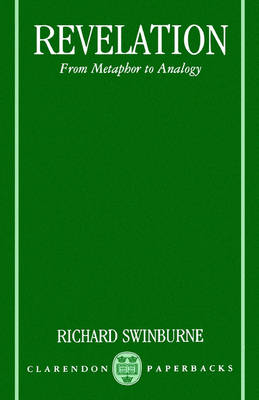Clarendon Paperbacks
3 total works
This book, the second in Swinburne's acclaimed trilogy on the philosophy of religion, examines the most important arguments for and against the existence of God--including the cosmological argument and arguments from design, consciousness and moral awareness, and miracles and religious experience. While none of these arguments can be shown to be deductively valid, Swinburne contends that they are mutually reinforcing in such a way that God's existence is more probable than not.
The great religions often claim that their books or creeds contain truth revealed by God. How could we know that they do? In Part I of "Revelation", Richard Swinburne investigates the general philosophical issue of how eternal truth can be conveyed in unfamiliar genres of poetry or parable, by analogy and metaphor, within false presuppositions about science and history. Part II considers the general question of what would show that some book or creed conveys revealed truth; and Part III considers what would show that the Christian Creeds and Bible convey revealed truth. A notable feature of the book is the sustained discussion of the criteria for which passages in the Bible should be taken literally and which should be taken metaphorically. "Revelation" is the second volume of a projected tetralogy on the philosophy of Christian doctrine, of which the first volume was "Responsibility and Atonement".
This study is based on the Edward Cadbury Lectures given by the author at the University of Birmingham in 1987. It is an account of how moral concepts such as forgiveness, praise, mercy, guilt and punishment and reward apply to human interaction and behaviour. The author attempts to reach conclusions about which versions of traditional Christian doctrines utilizing such notions are morally acceptable. He considers the doctrines of original sin, redemption, sanctification, heaven and hell.


